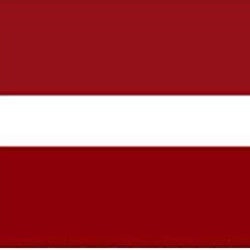 The impact of COVID-19 has taken its toll on many businesses and industries, not least the gambling sector. With global sport virtually at a standstill, land-based and online bookmakers have already taken a big hit.
The impact of COVID-19 has taken its toll on many businesses and industries, not least the gambling sector. With global sport virtually at a standstill, land-based and online bookmakers have already taken a big hit.
Now, Latvia has gone one step further and put a total ban on the entire industry while the country fights off this coronavirus pandemic.
Emergency COVID-19 Bill Rushed Through by Lawmakers
In the face of this global crisis, Latvia decided to be proactive. Egils Levits, the country’s president, signed an emergency bill on the 22nd of March which prohibited all gambling and lotteries. However, this initial bill made an exception for interactive gambling, instant-win lotteries, and numerical lotteries.
Understandably, these grey areas caused waves of confusion within the Latvian gambling sector. To clear up the issue, an amended bill was signed, which put a total ban on the entire industry – both retail and online.
The outright ban came into effect on the 6th of April, and it will last until the 14th of April. However, Janis Ungurs, who is the Director of the legal department for the Lotteries and Gambling Supervisory Authority has revealed that it is very likely to be extended beyond this date, with the possibility of it lasting for up to three months.
Why has Latvia Chosen to Close the Entire Industry?
At the time of writing (Wednesday the 8th of April), Latvia has 577 confirmed cases of COVID-19 and 2 deaths. However, the country has declared a state of emergency, and a total lockdown has been enforced. All schools, universities, nightclubs and fitness centres are closed. Therefore, it’s no surprise that brick and mortar casinos have been told to close given the rules on social distancing which all countries are currently implementing.
This does raise a question mark as to why Latvia’s government decided to ban online gambling activities that players can enjoy from the comfort of their homes. Little information has come to light at present for its reasoning, although it’s widely believed to be connected with problem gambling.
The fact that Latvians have to spend the majority of their day indoors could lead to a temptation to play more frequently. This sentiment has been echoed by the United Kingdom’s Gambling Commission. It has already warned numerous operators not to exploit this unprecedented situation by encouraging players to gamble longer than is healthy.
Potentially, Latvia is ahead of the curve here. Should other countries follow its lead and put a temporary ban on all forms of gambling? Time will tell which decision was the right one.




Leave A Comment